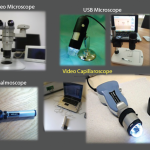Next Steps
To further understand the respective roles of the macrophage cells, Dr. Cutolo says his group is conducting follow-up studies on rheumatoid arthritis characterized by the prevalence of pro-inflammatory M1 cells.
“We would like to try to reduce the M1 polarization and possibly increase the M2 polarization,” he says. The work may help reveal the differing M1-M2 balance between the pro-inflammatory and anti-inflammatory cytokines in both diseases.
The CD86 marker, which is more closely associated with M1 cells but also up-regulated in M2 cells, for example, has been linked to both rheumatoid arthritis and systemic sclerosis macrophages. A CD86 blocker consisting of the fusion protein CTLA4-Ig (abatacept) has been a classical target for rheumatoid arthritis therapy. In a recent ACR presentation, Dr. Cutolo’s group suggests the biologic drug may benefit systemic sclerosis patients as well.
Combination therapies often include immune suppressors such as low-dose methotrexate or rituximab to deplete the C19 B lymphocytes that produce disease-promoting autoantibodies. Vasodilators plus vasoconstrictor inhibitors (such as endothelin-1 receptor blockers) can help promote blood flow and drug diffusion into tissues.
Researchers have long known that glucocorticoids can induce expression of the CD163 marker. In their study on lung involvement, Dr. Cutolo and colleagues analyzed the patients’ treatment regimens and noted that glucocorticoid use increased M2 polarization.
“This is probably one of the reasons why we don’t use glucocorticoids in systemic sclerosis too much—especially in high doses for overt disease—because it may induce a worsening of the disease,” Dr. Cutolo says.
He also says rheumatologists don’t yet know how other therapies in the existing and developing arsenal may alter the percentages of circulating macrophages, however. “So we have to treat patients with different drugs and we will see what happens.”4
Dr. Pioli cautions that it will be important to verify the study results with data from tissue macrophages, in part because the activation of macrophages is influenced by their local microenvironment. Researchers know that macrophages in different anatomical contexts, even within the same person, can have different activation profiles.
The low recovery rate of macrophages from human skin, she concedes, can present a major challenge for conducting functional studies. “But I think complementing these data with things like single-cell sequence data from primary tissue macrophages will be really important,” says Dr. Pioli. “And we can certainly use these peripheral blood cells as models based on what we know about their activation.”
If verified, the resulting signature of up-regulated markers could provide a better indicator of active systemic sclerosis, Dr. Pioli says. “I think it will be important for things like sub-setting patients, and down the line for potentially devising differential therapeutics for different patients based on their gene expression profile of the macrophages.”
Those goals are likely to be aided by a growing pool of macrophage cell surface markers. “I think that there are many, many more. This is really just scratching the surface,” Dr. Pioli says. “We can get a much more defined picture, I think, because this is just a very general survey, but I think it’s important because nobody’s done it.”

